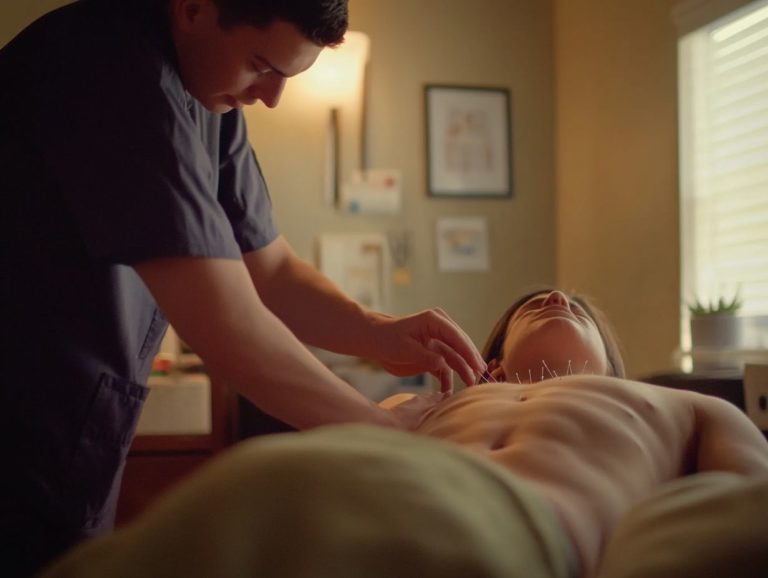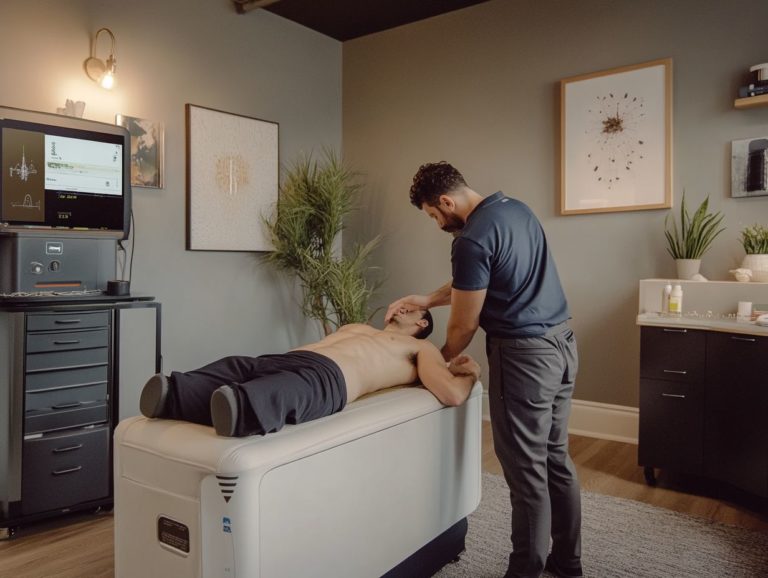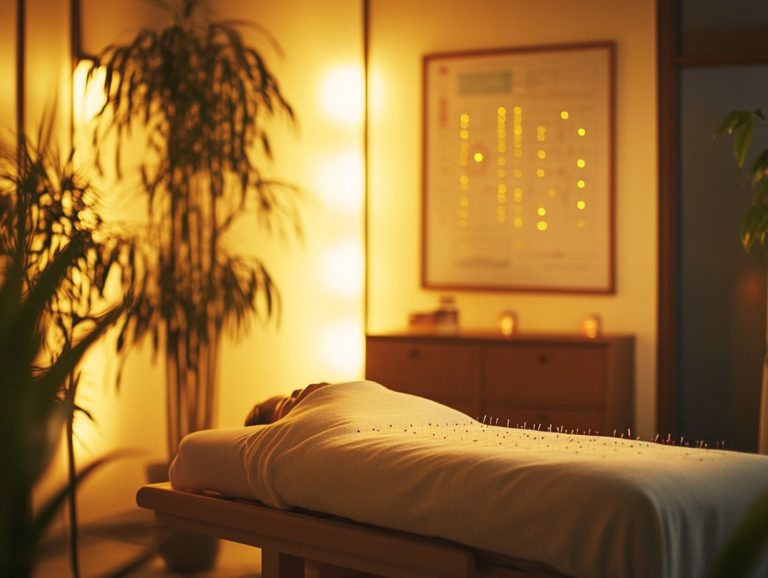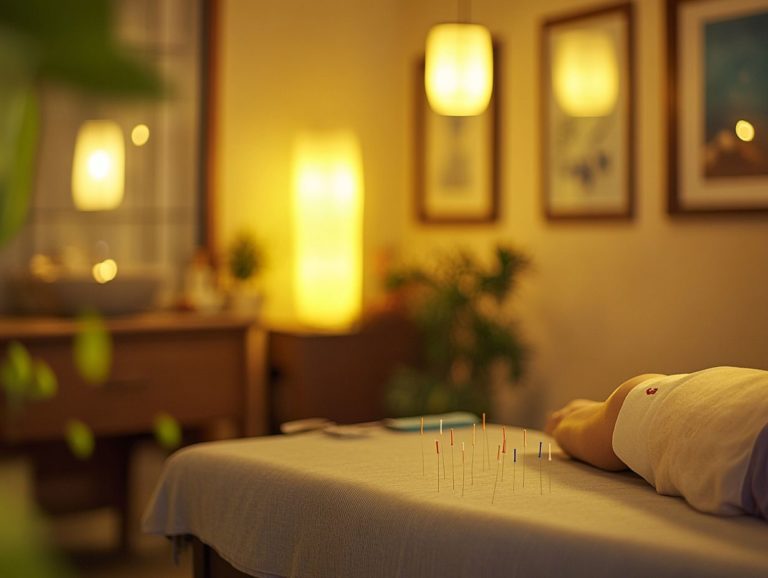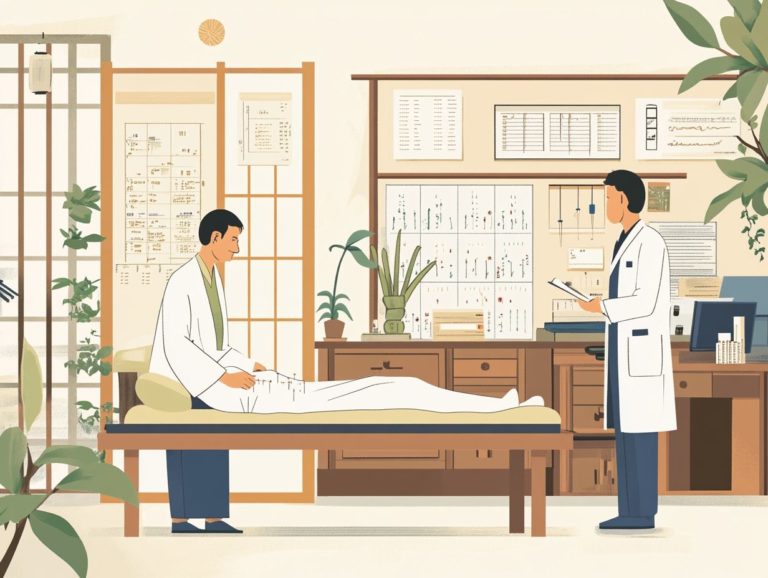Common Misconceptions About Acupuncture Debunked
Acupuncture, an essential aspect of Traditional Chinese Medicine, has garnered significant attention for its ability to enhance both physical and mental well-being.
Misunderstandings surrounding this ancient practice often obscure its genuine advantages. This article delves into the essence of acupuncture, debunks prevalent myths, and presents scientific evidence that underscores its effectiveness.
Don t wait! Discover how acupuncture can transform your health now! You ll also find insights into how acupuncture operates, the diverse health benefits it can provide, and valuable tips for selecting a qualified acupuncturist.
Contents
Key Takeaways:
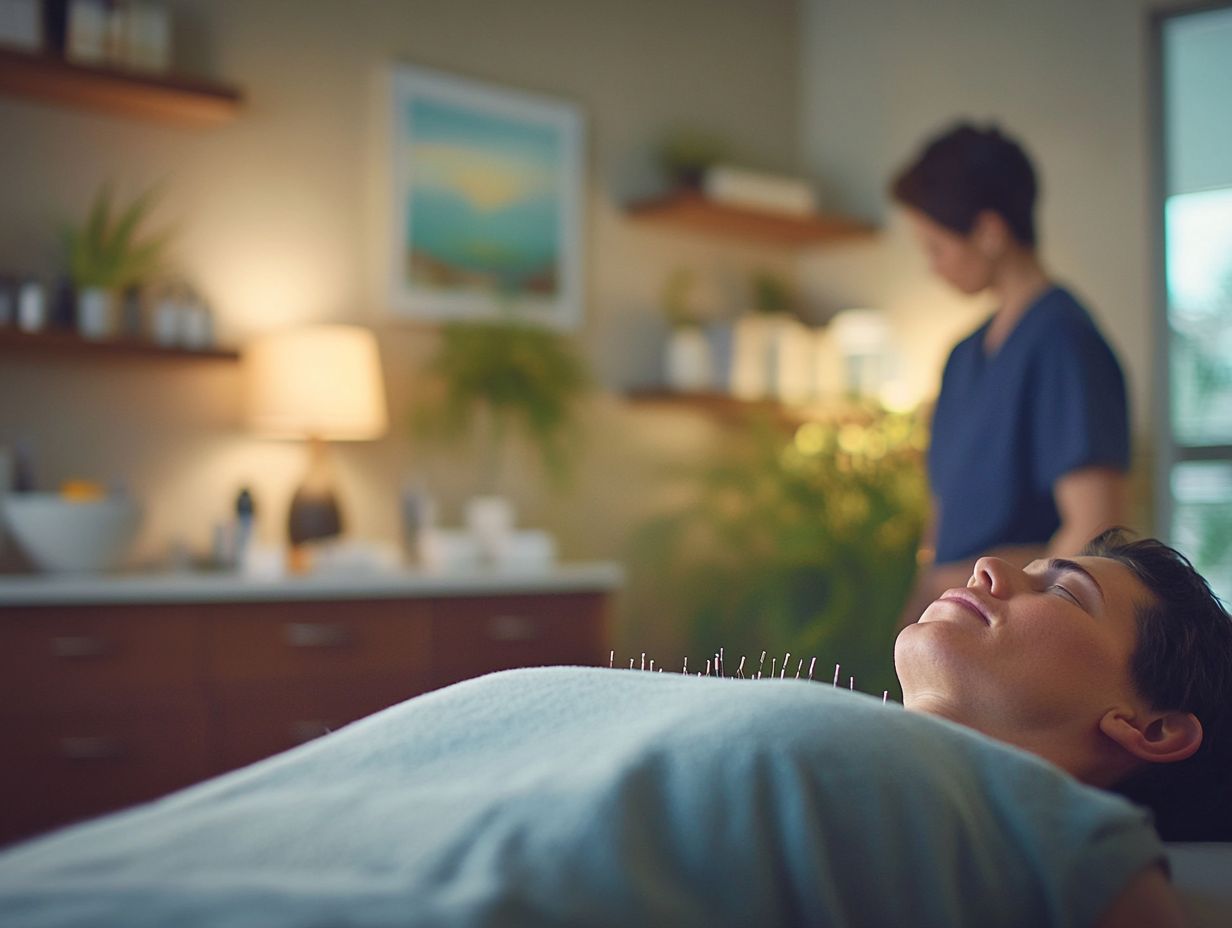
- Acupuncture is a key part of Traditional Chinese Medicine, which has been practiced for thousands of years.
- Scientists have shown that acupuncture works as a safe and effective treatment for various physical and mental health conditions.
- When choosing an acupuncturist, consider their qualifications, experience, and the overall environment of their practice.
What is Acupuncture?
Acupuncture is a holistic healing practice deeply rooted in traditional Chinese medicine (TCM). It is designed to restore the balance of Qi, which means life energy, flowing through your body.
This treatment involves the gentle insertion of fine acupuncture needles into specific points. It stimulates your body s natural healing processes, alleviating pain and enhancing emotional well-being.
As an ancient practice, acupuncture has gained recognition in the medical community as an effective alternative therapy for various chronic conditions, including musculoskeletal pain, anxiety, and digestive issues.
Overview of Traditional Chinese Medicine
Traditional Chinese Medicine (TCM) is an ancient healing system that elegantly combines various therapies acupuncture, herbal medicine, and dietary therapy to foster balance and health within your body.
At the core of TCM is Qi, the vital force that flows through pathways known as meridians, influencing every aspect of your health. When Qi flows freely and is harmoniously balanced, your body thrives, showcasing vitality and resilience against illness.
However, blockages or imbalances can lead to various health challenges. Acupuncture, a cornerstone of TCM, skillfully stimulates specific points along these meridians, rejuvenating the flow of Qi and activating your body s innate healing abilities.
Combined with herbal remedies and nutritional guidance, TCM offers a holistic approach that not only tackles symptoms but also enriches your overall well-being, enhancing mental clarity and emotional stability along the way.
Common Misconceptions about Acupuncture
Despite its increasing popularity, acupuncture is often misunderstood, which may discourage you from discovering its potential benefits as an alternative therapy.
Debunking Myths and Misunderstandings
Many misconceptions surround acupuncture, such as the belief that it s merely a placebo effect or concerns about the safety of needles. Such views overlook the substantial research supporting acupuncture s ability to alleviate chronic pain and address various health conditions.
Numerous studies reveal how acupuncture can activate your body s natural healing processes, offering relief where traditional medicine might struggle.
For instance, individuals have reported remarkable improvements in conditions like arthritis, migraines, and fibromyalgia after tailored acupuncture treatments. Those who once doubted its effectiveness often express surprise at their swift recovery and diminished pain levels, emphasizing the power of customized acupuncture plans designed specifically for their unique needs.
Scientific Evidence for Acupuncture

Numerous studies and research conducted by esteemed institutions such as the National Institutes of Health and the World Health Organization have significantly enriched the growing body of scientific evidence supporting acupuncture as an effective treatment modality.
This robust research underscores the potential benefits of acupuncture, elevating its status within the realm of alternative therapies.
Are you ready to take control of your health? Find a qualified acupuncturist near you today!
Research and Studies Supporting its Efficacy
Research shows that acupuncture stimulates the release of endorphins, the body’s natural pain relievers. This can provide significant relief for those facing chronic pain.
Studies confirm this ancient practice alleviates discomfort and improves overall health. For example, a review of randomized controlled trials indicates that acupuncture significantly reduces conditions like back pain, arthritis, and migraines.
Patients report measurable improvements in their quality of life. Many experience less dependence on medications and feel an emotional boost.
How Acupuncture Works
Acupuncture works by targeting specific points on your body to restore the flow of Qi (pronounced ‘chee’). This process addresses blockages that can cause various physical and emotional issues.
Understanding the Mechanisms of Action
The mechanisms behind acupuncture are fascinating. This practice uses precise needle insertion to influence Qi, enhancing your emotional and physical health.
Engaging with acupuncture triggers responses in your nerves and blood vessels that promote healing. Specifically placed needles stimulate nerve endings, leading to the release of endorphins and neurotransmitters, which help relieve pain and improve mood.
Benefits of Acupuncture
The benefits of acupuncture go well beyond pain relief. This remarkable practice improves both physical and emotional well-being, making it a versatile treatment option.
Physical and Mental Health Benefits
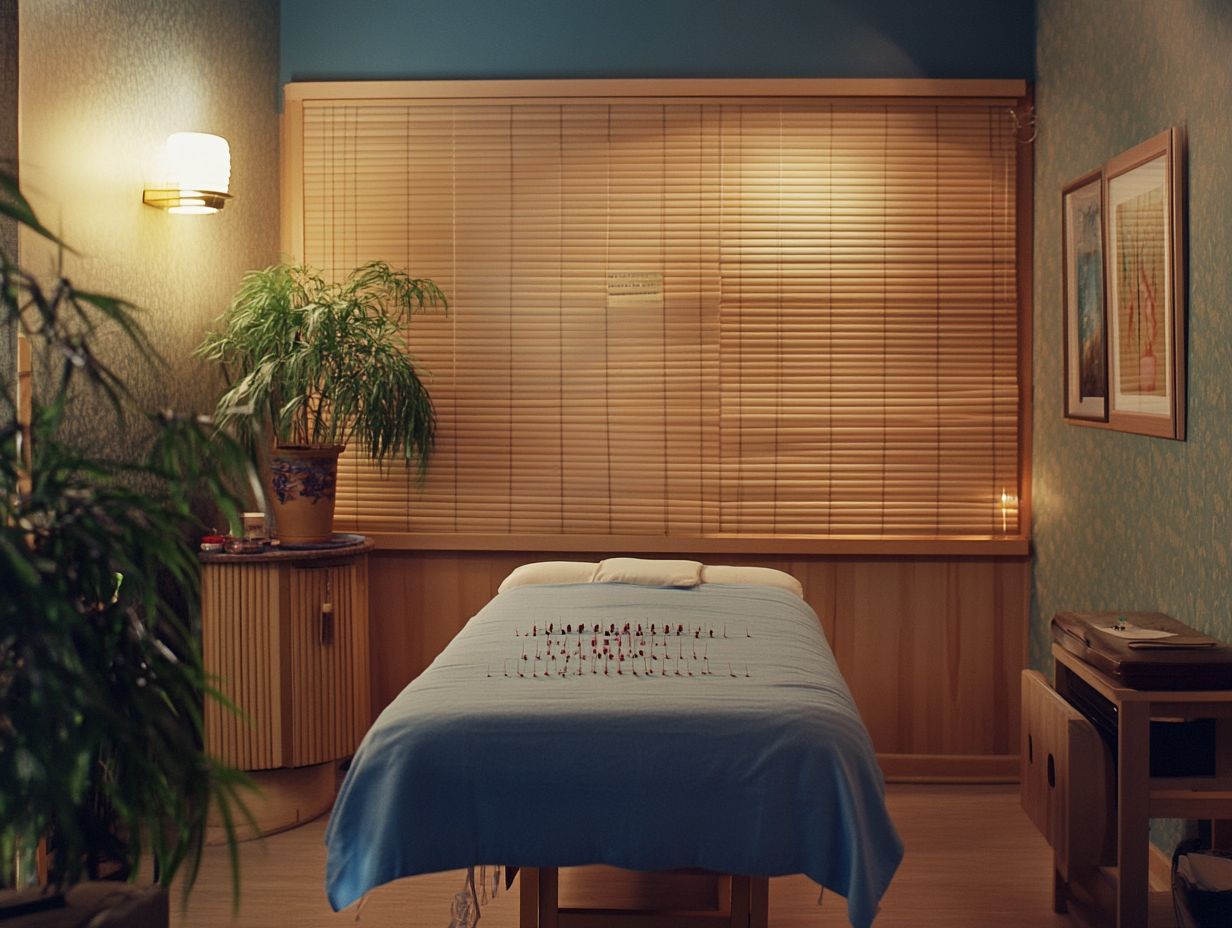
Acupuncture eases discomfort by releasing endorphins. It also effectively addresses issues like anxiety and insomnia.
This ancient practice stimulates specific points on your body. This prompts your nervous system to release natural chemicals that foster relaxation and emotional balance.
When endorphins are released, you may feel a delightful sense of euphoria. This helps reduce stress and increases comfort.
Embracing acupuncture promotes overall wellness. It complements traditional treatment plans and helps you manage symptoms comprehensively.
Incorporating acupuncture into your health regimen can lead to renewed vitality and tranquility.
Choosing an Acupuncturist
Selecting the right acupuncturist is key to effective treatment. Seek licensed practitioners with proper qualifications and experience in acupuncture.
Ensuring you find the right match will significantly enhance your healing journey.
What to Look for and Consider
When selecting an acupuncturist, consider their licensing, training, and patient testimonials. These factors ensure you have a positive experience and effective treatment.
Investigating educational qualifications is vital. Practitioners should complete a thorough program with hands-on training and theoretical knowledge.
Safety measures are crucial. Professionals must follow strict hygiene standards and use sterilized equipment to minimize infection risks.
Reading testimonials from previous patients offers valuable insights into the practitioner s effectiveness. Don’t miss the chance to read reviews and connect with past clients!
This perspective helps you make an informed decision about the right acupuncturist for your needs.
Frequently Asked Questions
Does acupuncture hurt?
No, acupuncture is not painful. The needles are extremely thin, about the width of a hair, and are inserted gently. Many people feel only a slight sensation or none at all.
Is acupuncture only effective for pain relief?
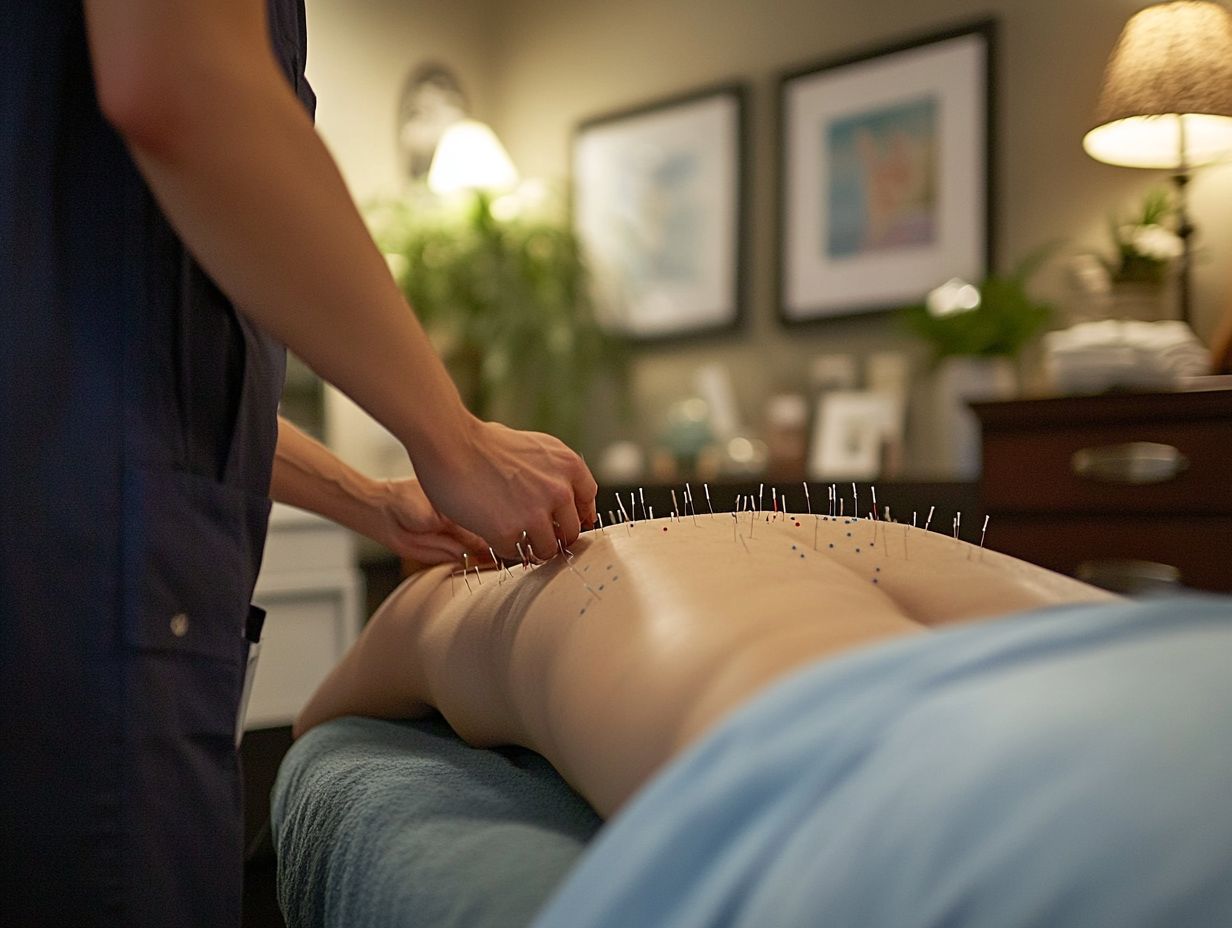
No, acupuncture can treat many conditions beyond pain. It can help with digestive issues, anxiety, and fertility problems by stimulating specific points on the body for overall wellness.
Is acupuncture witchcraft or superstition?
No, acupuncture is a legitimate traditional Chinese medicine practiced for thousands of years. Modern science supports its effectiveness in treating various health conditions.
Will acupuncture interfere with my medications?
No, acupuncture does not interfere with medications. However, inform your acupuncturist about any medications you’re taking so they can adjust your treatment.
Is acupuncture only for adults?
No, acupuncture can benefit people of all ages, including children. Pediatric acupuncture is a specialized practice addressing various health issues in children.
Can acupuncture cure all illnesses?
No, acupuncture cannot cure all illnesses. While effective for many conditions, it should not replace medical advice from a qualified healthcare provider for serious or chronic health issues.


